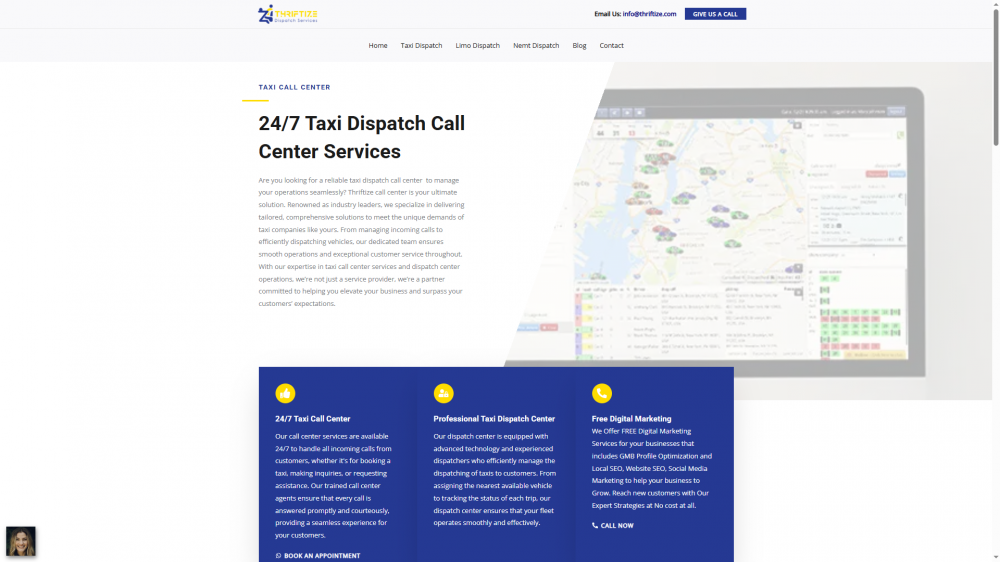Secrets of High-Performing Taxi Dispatch Call Centers: What Sets Them Apart? | ||||||
|
In the highly competitive transportation industry, taxi dispatch call centers are much more than mere operators—they are the strategic hubs that connect drivers with passengers, manage real-time logistics, and shape customer experiences. High-performing dispatch centers go beyond routine call handling; they leverage advanced technology, skilled staff, and data-driven strategies to ensure efficiency, reliability, and customer satisfaction. In this article, we delve into the secrets behind the success of these centers, uncovering the elements that set them apart from their competitors. 1. Advanced Technology IntegrationA fundamental characteristic of top-tier taxi dispatch centers is their seamless integration of advanced technology. Cutting-edge software and digital tools empower these centers to optimize operations and respond to customer needs promptly.
By harnessing these technological tools, high-performing centers streamline operations and set a benchmark for efficiency. 2. Highly Trained and Motivated StaffTechnology is only as effective as the people who operate it. High-performing taxi dispatch call centers invest heavily in their staff, ensuring that agents are well-equipped to handle the diverse challenges of the industry.
Investing in human capital not only boosts operational efficiency but also enhances the overall customer experience.
3. Effective Communication and Multichannel SupportCommunication is the lifeblood of any dispatch center. High-performing centers offer multiple channels through which customers can interact, ensuring that every inquiry is addressed promptly and professionally.
By prioritizing communication, dispatch centers build trust and create a smoother experience for both customers and drivers. 4. Data-Driven Decision MakingHigh-performing dispatch centers rely on data to continuously refine their operations. By analyzing performance metrics and customer feedback, these centers can identify areas for improvement and make informed decisions that enhance efficiency and service quality.
Data-driven strategies empower dispatch centers to continuously evolve and meet the changing demands of the market. 5. Quality Assurance and Continuous ImprovementMaintaining high standards is essential for any successful dispatch center. Robust quality assurance practices ensure that every customer interaction meets predefined service benchmarks.
Quality assurance processes are instrumental in maintaining a consistent level of service that drives customer loyalty. 6. Scalability and FlexibilityAdaptability is a key characteristic of high-performing dispatch centers. As customer demand fluctuates, these centers can scale their operations efficiently to maintain high service levels.
This flexibility not only improves efficiency but also positions dispatch centers for long-term success in a rapidly evolving industry. 7. The Human Touch in a Digital WorldEven with all the advancements in technology, the human element remains irreplaceable. The personal touch provided by well-trained agents is what truly sets high-performing taxi dispatch call centers apart. For instance, Taxi Call & Dispatch Center Support by Thriftize is renowned for its commitment to combining advanced technology with empathetic, personalized service. This blend of digital efficiency and human interaction creates a seamless experience that automated systems alone cannot match.
ConclusionThe secrets of high-performing taxi dispatch call centers lie in their ability to seamlessly integrate advanced technology with skilled, empathetic human interaction. By investing in sophisticated dispatch systems, comprehensive staff training, and data-driven decision making, these centers not only reduce wait times and improve booking efficiency but also create a superior customer experience that drives loyalty and profitability. In a competitive industry where every second counts, maintaining high service standards is critical. High-performing dispatch centers are distinguished by their robust quality assurance practices, scalability, and the irreplaceable human touch that ensures customers feel valued and understood. Ultimately, for taxi companies aiming to thrive in today’s fast-paced market, partnering with a high-performing dispatch center is not just an operational necessity—it is a strategic investment in customer satisfaction and long-term success. https://cabcallcenters.mystrikingly.com/ http://24hrcabdispatch.wikidot.com/ https://reliabletaxihub.edublogs.org/ | |||||
 |
